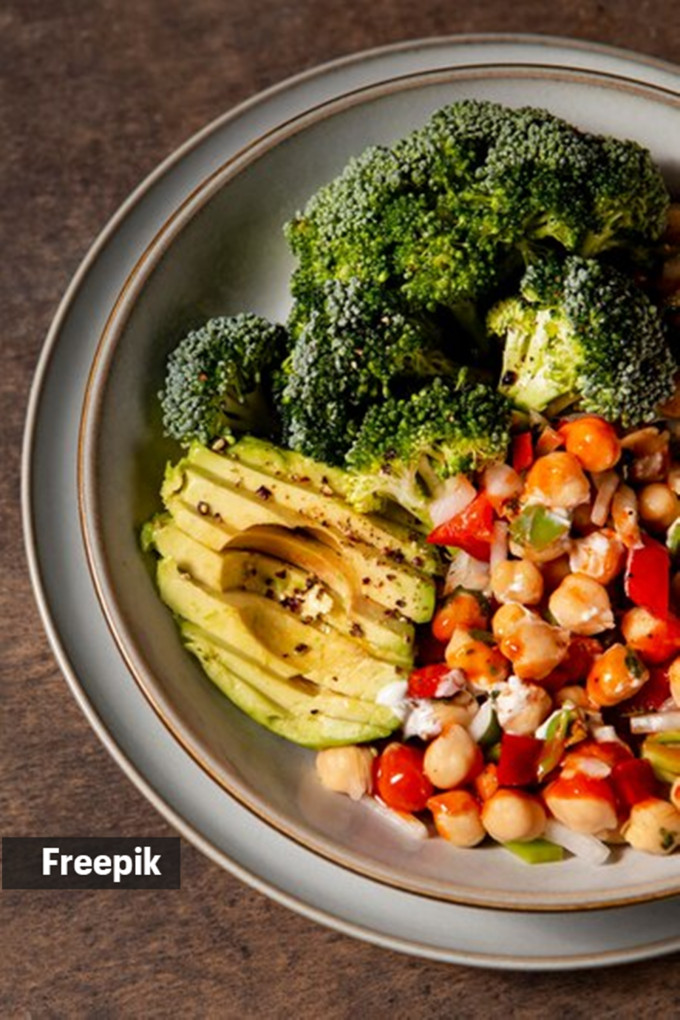Athletes at Paris Olympics served predominantly vegan food; learn how this diet can boost performance
For the ongoing Paris Olympics, the Games Village, known for catering to the diverse nutritional needs of competitors, has made a significant shift in its menu this year.
In a bold move towards sustainability and health, organisers have decided to reduce the amount of meat, cheese, and dairy products offered, while increasing the availability of vegan options.

According to a report by indianexpress.com, Paris has an ambitious plan for curbing its carbon footprint – they are estimating a carbon footprint of 1.58 million metric tons of CO2, less than that of the Covid-hit Tokyo Olympics (1.96 million metric tons of CO2).
Livestock farming contributes significantly to global warming, equalling the impact of the transport industry. Shifting towards plant-based diets can drive businesses to adapt to making sustainable choices.
The report adds that the Olympic Games Village is expected to serve around 13 million meals and snacks. The International Olympic Committee reports that 60 per cent of these will be plant-based. They’re aiming to limit carbon emissions to 1 kg of CO2 per meal, which is half the usual amount at the past Olympic Games.
To achieve this goal, the menu will feature more fruits and vegetables, and prioritise seasonal and local ingredients. France plans to source 80% of its food domestically to reduce transportation-related emissions.
As athletes settle into the Village, they’ll find a variety of colourful, nutrient-dense vegan dishes alongside the reduced selection of animal products, but what effect will this dietary shift have on both their health and the planet?
 A vegan diet is frequently connected with reduced levels of inflammation (Source: Freepik)
A vegan diet is frequently connected with reduced levels of inflammation (Source: Freepik)
Main nutritional benefits of serving vegan food to athletes at the Paris Olympics
Kanikka Malhotra, consultant dietician and certified diabetes educator, mentions, “This transition to a more sustainable and environmentally friendly diet for athletes offers various nutritional benefits.”
Enhanced Recovery and Performance
Antioxidants: Plant-based meals are high in antioxidants, which help battle oxidative stress, minimising muscle damage and inflammation and allowing for speedier recovery.
Hydration: Many plant-based foods have a high water content, aiding in hydration, essential for optimal athletic performance.
Reduced Inflammation: A vegan diet is frequently connected with reduced levels of inflammation, which can help athletes reduce joint pain and improve overall recovery.
Optimised Nutrient Intake
Carbohydrates: Plant-based diets are high in complex carbohydrates, which provide sustained energy to endurance athletes.
Protein: While often associated with animal products, numerous plant-based protein sources like lentils, chickpeas, tofu, and tempeh can meet athletes’ protein needs.
Fibre: High fibre content in plant-based foods aids digestion and can contribute to satiety, helping athletes maintain optimal weight.
Vitamins and Minerals: With careful planning, a vegan diet can provide all essential vitamins and minerals, including iron, calcium, zinc, and B vitamins, crucial for athletic performance.
Potential challenges athletes might face when transitioning to a predominantly vegan diet
Transitioning to a predominantly vegan diet can present several challenges for athletes, particularly concerning protein intake and energy levels, says Malhotra. Here are the key issues they may face:
Protein Deficiency: Athletes require ample protein for muscle repair and growth. While plant-based protein sources like tofu, lentils, and chickpeas exist, ensuring sufficient intake can be difficult. It requires careful meal planning and potentially protein supplements.
Energy Levels: Animal products often provide concentrated energy sources, which can be challenging to replicate in a plant-based diet. Athletes need sustained energy for performance, and finding the right balance of carbohydrates, fats, and proteins is crucial.
Nutrient Deficiencies: Vegans may be at risk for deficiencies in iron, zinc, calcium, vitamin B12, and omega-3 fatty acids, all essential for athletic performance and recovery.
Malhotra states, “Athletes switching to a vegan diet can overcome obstacles like protein insufficiency, low energy, and nutrient gaps by eating a variety of plant-based meals, including healthy fats and complex carbs, and adopting specialised supplements. Careful meal planning, including protein-rich combinations and fortified meals, is required.”
📣 For more lifestyle news, click here to join our WhatsApp Channel and also follow us on Instagram
Disclaimer: The copyright of this article belongs to the original author. Reposting this article is solely for the purpose of information dissemination and does not constitute any investment advice. If there is any infringement, please contact us immediately. We will make corrections or deletions as necessary. Thank you.

